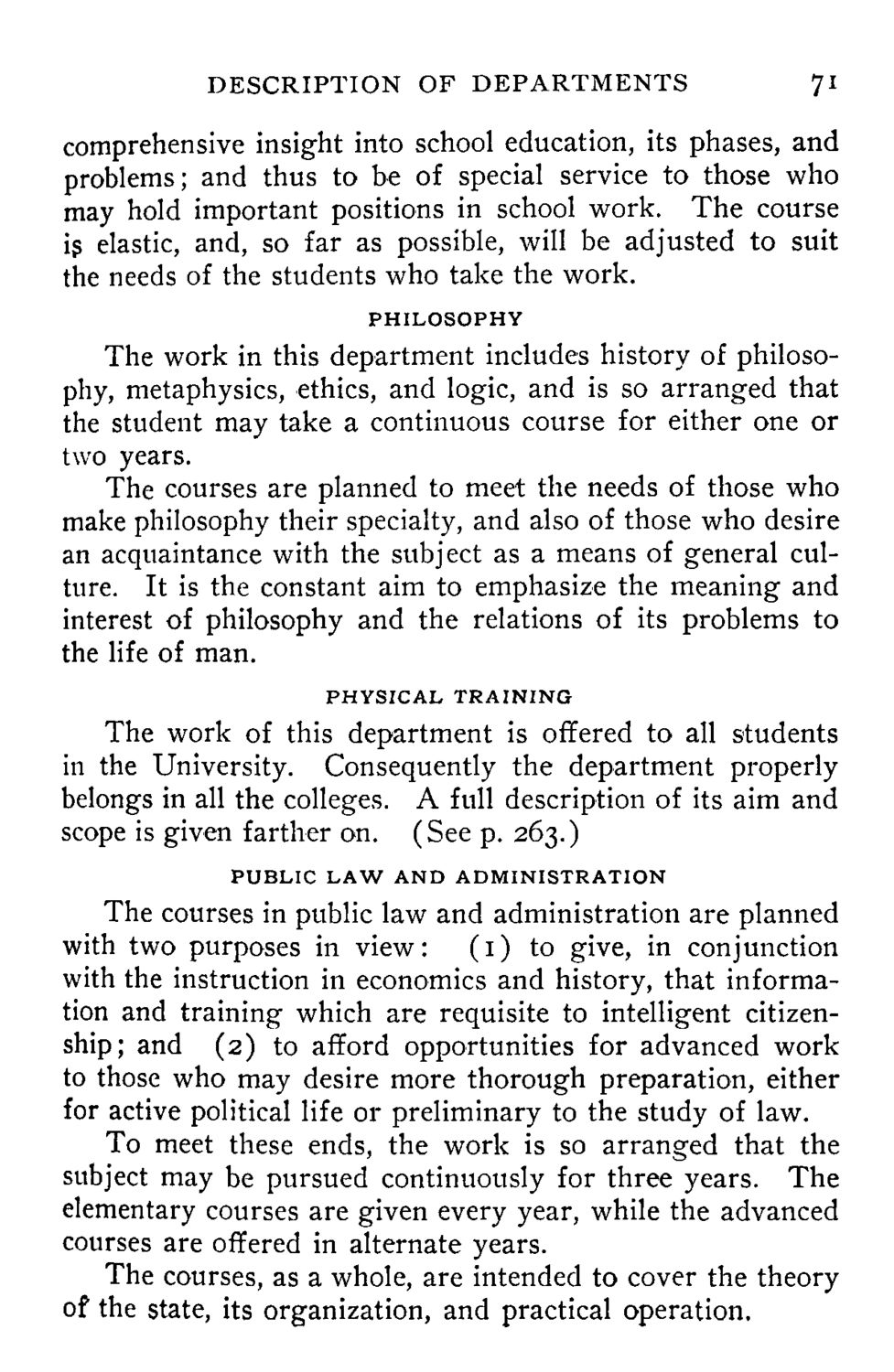Caption: Course Catalog - 1898-1899
This is a reduced-resolution page image for fast online browsing.

EXTRACTED TEXT FROM PAGE:
DESCRIPTION OF DEPARTMENTS 71 comprehensive insight into school education, its phases, and problems; and thus to be of special service to those who may hold important positions in school work. The course is elastic, and, so far as possible, will be adjusted to suit the needs of the students who take the work. PHILOSOPHY The work in this department includes history of philosophy, metaphysics, ethics, and logic, and is so arranged that the student may take a continuous course for either one or two years. The courses are planned to meet the needs of those who make philosophy their specialty, and also of those who desire an acquaintance with the subject as a means of general culture. It is the constant aim to emphasize the meaning and interest of philosophy and the relations of its problems to the life of man. PHYSICAL TRAINING The work of this department is offered to all students in the University. Consequently the department properly belongs in all the colleges. A full description of its aim and scope is given farther on. (See p. 263.) PUBLIC LAW AND ADMINISTRATION The courses in public law and administration are planned with two purposes in view: (1) to give, in conjunction with the instruction in economics and history, that information and training which are requisite to intelligent citizenship; and (2) to afford opportunities for advanced work to those who may desire more thorough preparation, either for active political life or preliminary to the study of law. To meet these ends, the work is so arranged that the subject may be pursued continuously for three years. The elementary courses are given every year, while the advanced courses are offered in alternate years. The courses, as a whole, are intended to cover the theory of the state, its organization, and practical operation.
|